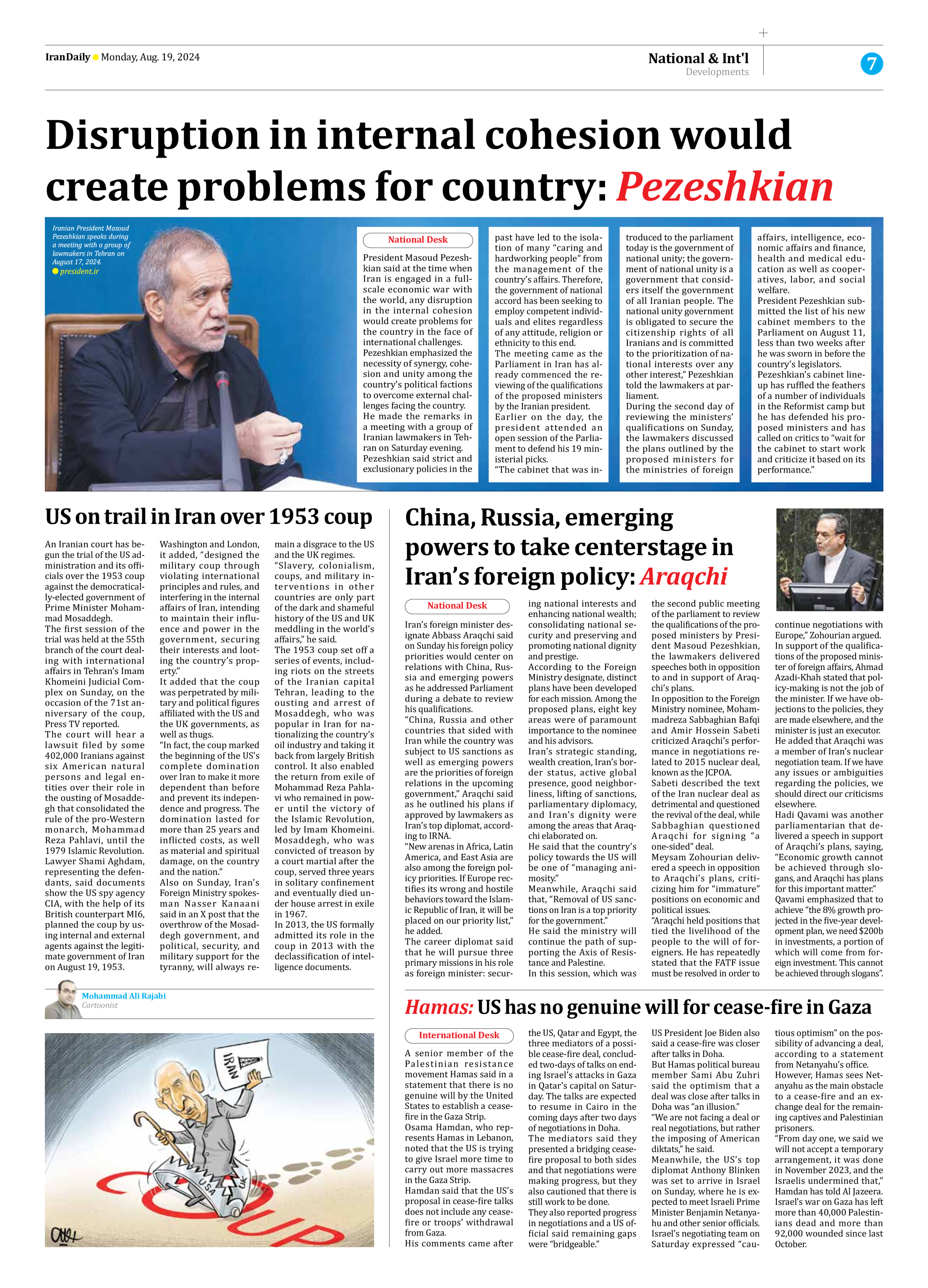
Copy in clipboard...
US on trail in Iran over 1953 coup
The first session of the trial was held at the 55th branch of the court dealing with international affairs in Tehran’s Imam Khomeini Judicial Complex on Sunday, on the occasion of the 71st anniversary of the coup, Press TV reported.
The court will hear a lawsuit filed by some 402,000 Iranians against six American natural persons and legal entities over their role in the ousting of Mosaddegh that consolidated the rule of the pro-Western monarch, Mohammad Reza Pahlavi, until the 1979 Islamic Revolution.
Lawyer Shami Aghdam, representing the defendants, said documents show the US spy agency CIA, with the help of its British counterpart MI6, planned the coup by using internal and external agents against the legitimate government of Iran on August 19, 1953.
Washington and London, it added, “designed the military coup through violating international principles and rules, and interfering in the internal affairs of Iran, intending to maintain their influence and power in the government, securing their interests and looting the country’s property.”
It added that the coup was perpetrated by military and political figures affiliated with the US and the UK governments, as well as thugs.
“In fact, the coup marked the beginning of the US’s complete domination over Iran to make it more dependent than before and prevent its independence and progress. The domination lasted for more than 25 years and inflicted costs, as well as material and spiritual damage, on the country and the nation.”
Also on Sunday, Iran’s Foreign Ministry spokesman Nasser Kanaani said in an X post that the overthrow of the Mosaddegh government, and political, security, and military support for the tyranny, will always remain a disgrace to the US and the UK regimes.
“Slavery, colonialism, coups, and military interventions in other countries are only part of the dark and shameful history of the US and UK meddling in the world’s affairs,” he said.
The 1953 coup set off a series of events, including riots on the streets of the Iranian capital Tehran, leading to the ousting and arrest of Mosaddegh, who was popular in Iran for nationalizing the country’s oil industry and taking it back from largely British control. It also enabled the return from exile of Mohammad Reza Pahlavi who remained in power until the victory of the Islamic Revolution, led by Imam Khomeini. Mosaddegh, who was convicted of treason by a court martial after the coup, served three years in solitary confinement and eventually died under house arrest in exile in 1967.
In 2013, the US formally admitted its role in the coup in 2013 with the declassification of intelligence documents.







